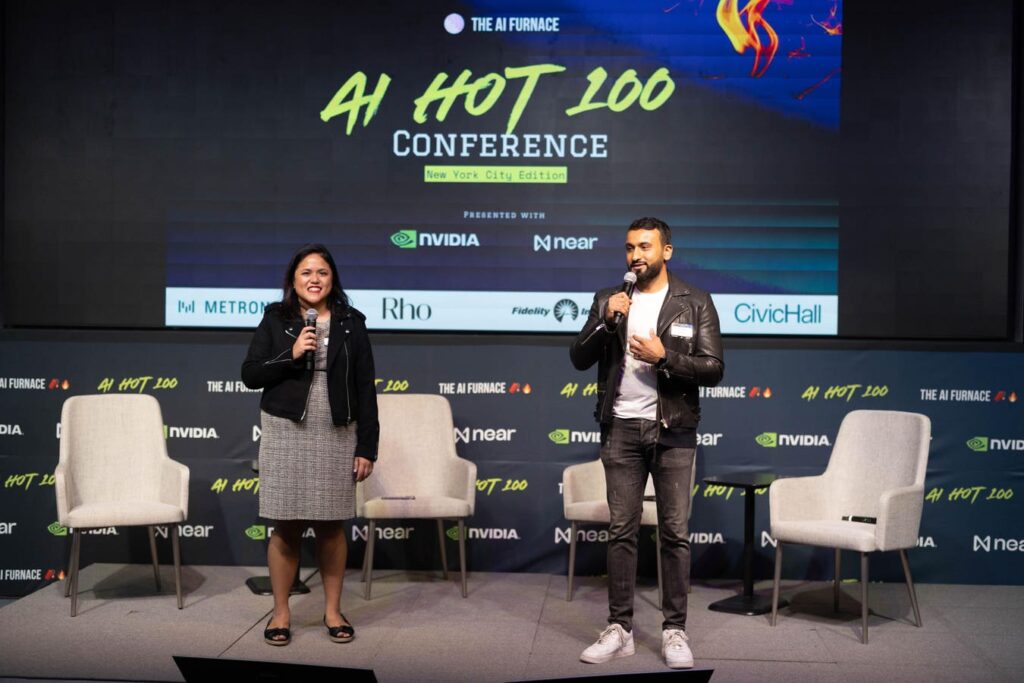The Gusto 2025 New Business Formation Report reveals a startup landscape led by female founders, shaped by GenAI, and moving beyond the side hustle era despite economic headwinds and corporate layoffs.
According to Gusto’s report, nearly half of new businesses (49%) were founded by women last year—a 69% increase from 2019 and the highest in the report’s five-year history. These gains reflect a broader transformation: AAPI, Black and Latinx entrepreneurs are also increasing their footprint, with startup rates up 17%, 67% and 25%, respectively, since 2019.
Women and minority entrepreneurs are playing a key role in the small-business community and tech startup ecosystem, adding new perspectives to everyday challenges. While the environment remains competitive, many new businesses are building a solid foundation for continued progress.
“Women and minority founders are not just participating—they’re defining the future of small business.”
Female Founders Want Autonomy
The top motivators for starting a business? Autonomy, flexibility and financial security. A full 65% said they wanted to be their own boss, while over half cited the ability to set their own schedule or build long-term wealth.
For many female founders, that autonomy is more than aspirational—it’s a strategic necessity. Entrepreneurship offers control over their time, ideas, and outcomes in ways that traditional workplaces often don’t. It creates space to integrate work and caregiving without compromise, while also reclaiming ownership in environments where credit, visibility and promotion can be disproportionately distributed.
“You don’t have to fight for recognition when you’re building something that’s yours,” said one founder featured in Gusto’s report.
This alignment of personal agency and professional growth is particularly compelling for women navigating inflexible corporate cultures or stalled advancement. It’s also why many are building businesses designed not just to succeed, but to sustain the life they want.
Female Founders Rise From Silicon Valley to Main Street
This cultural shift is mirrored at the highest levels of U.S. tech. Lucy Guo, a Chinese American entrepreneur, recently surpassed Taylor Swift to become the world’s youngest self-made female billionaire. As the former cofounder of Scale AI and now the founder of Passes, she is one of just six self-made female billionaires under 40—and the only one to make the bulk of her fortune from a company she left.
After exiting Scale in 2018, Guo retained an estimated 5% stake, now worth nearly $1.2 billion. Her latest startup, Passes, continues to push the frontier of the creator economy. She also launched Backend Capital, a small venture firm that backs early-stage startups.
Other AI-driven female founders are also shaping the landscape:
- Allison Kopf, founder of Artemis (acquired by iUNU), is helping optimize agriculture with AI
- Carolyn Mooney, CEO of Nextmv, is streamlining decision-making with operational AI tools
- Samantha John, cofounder of Hopscotch, continues to advocate for creative coding powered by machine learning for kids
Their stories reflect a growing reality: Women aren’t just adopting AI—they’re building it.
Female Founders of Color Are Leading AI’s Ethical and Technical Frontier
Several American women of color are also leading transformational work across the AI ecosystem:
- Fei-Fei Li, co-director of Stanford’s Human-Centered AI Institute and founder of AI4ALL, is advancing ethical AI and inclusive talent development
- Sampriti Bhattacharyya, founder of Navier and previously Hydroswarm, is pioneering AI-powered robotics for defense and disaster relief
- Rumman Chowdhury, founder of Humane Intelligence and former director of ML ethics at Twitter, builds open-source tools to audit generative models
- Joy Buolamwini, founder of the Algorithmic Justice League, exposed bias in facial recognition and pressured tech giants to pause controversial programs
- Angela Benton, founder of Streamlytics, is creating ethical data alternatives and mentoring emerging minority tech leaders
- Snow, co-founder of Langfinity, is building an AI interpreter for real-time multilingual communication across global teams.
- Cynthia Breazeal, MIT roboticist and Forbes 50 Over 50 honoree, is advancing human-machine interaction and emotionally intelligent AI
“These founders prove that the future of AI isn’t just male or white—it’s multiracial, multidisciplinary, and deeply mission-driven.”
Startup Communities Are Fueling Female Founders And Diverse Founders
The rise of AI-focused and community-first startup ecosystems is accelerating this shift. Networks like Supermomos, founded by Edwina Yeo, which blends in-person community events with a professional network for founders, engineers and investors, have seen a significant uptick in female founder participation—especially in AI. By hosting events such as the “Female Founders & Funders Fireside Chat and Mixer,” Supermomos provides platforms for women in tech to connect, share insights and foster collaborations.
“We’re seeing some encouraging shifts in our community: 41% of early-stage founders who joined us in 2024 were women, up from 26% in 2022, and now many of those founders are graduating to venture-backed status–28% of venture-backed startups joining us in 2025 are women-led, compared to 15% in 2022. We’re hoping to accelerate this trend in our own small way through the Supermomos Female Founders and Funders series with Perkins Coie, where we bring together early-stage founders learning from female founders who’ve scaled as well as female VCs. When the pipeline flows both ways with new founders starting and successful founders teaching, that’s how we can build generational change in entrepreneurship,” said Yeo.
Similarly, AI Furnace, a founder-led community focused on early technical AI startups, reports that women now make up more than a third of their active founder base, up from just 10% in 2022. The community, co-founded by Angela Mascarenas and Hamza Zaveri, has rapidly grown to more than 15,000 members across six cities and four countries, emphasizing inclusivity and founder support outside traditional tech hubs.
“The women we’re seeing come through AI Furnace aren’t asking for access—they’re showing up with working demos, strong theses and global ambition,” said Mascarenas.
This trend parallels insights from my previous reporting on female founders who are demanding more than token inclusion—they want funding, transparency and real traction.
Dreamers & Doers is a national, curated community for female founders that just celebrated its tenth anniversary last year. Recently, it’s seen a growing influx of AI-powered startups—a shift that makes its visibility-first approach even more urgent. Because even as women build the future, they can’t reshape the narrative if they’re kept out of view.
Another standout community leading this new paradigm is JADEVA, a women-led business and leadership collective redefining how feminine power builds, scales, and sustains. Blending entrepreneurship with spiritual alignment, JADEVA offers a high-impact alternative to traditional startup culture. With thriving chapters in major cities and a rapidly expanding global presence, it is creating sacred, strategic spaces where women grow wealth, visibility, and legacy—without diluting their values or compromising their feminine leadership. At its core, JADEVA is a higher self sisterhood, activating a global movement of women building businesses from embodiment, intuition, and unshakable alignment.
“I was too spiritual for business circles and too ambitious for sacred ones. So we built JADEVA, for women who refuse to choose between power and depth.”
— Olivia Steele, Co-Founder of JADEVA
Capital For Diverse Founders
While community and visibility are critical, capital still matters. A new generation of inclusive accelerators and venture funds are stepping in to fill the funding gap with real checks—not just mentorship. Firms like Slauson & Co. and Gold House Ventures are backing underrepresented founders with $100K to $500K investments, helping them scale beyond pitch stages. These programs combine capital with coaching and network access, enabling founders to move from overlooked to investable.
South Park Commons (SPC), founded by Ruchi Sanghvi, is a San Francisco-based accelerator and community for technical founders exploring what to build next. More than just an early-stage fund, SPC offers a space for experimentation, often backing founders pre-idea and staying involved through seed rounds. The organization has a strong track record of backing women, immigrants, and technically ambitious nontraditional founders. Its founding team and many of its members are women or BIPOC, creating a community that reflects the future of inclusive innovation.
GenAI Is Powering a New Era of Scrappy, Scalable Startups
Founders are increasingly turning to generative AI not just for experimentation, but as a core part of their operational playbook. According to Gusto, 47% of new businesses used GenAI in 2024, more than double the 21% adoption rate in 2023—and usage is even higher among Gen Z-led startups.
Rather than relying on large teams or expensive outsourced services, many early-stage founders are using GenAI to get more done with less. Customer acquisition is by far the most common GenAI use case, with 71% of GenAI users applying it to marketing tasks and 37% using it to streamline their sales process. Others are automating everything from legal document generation to content creation to financial modeling.
Gusto found that 81% of GenAI-using founders said it significantly boosted productivity, and 37% said it helped them avoid making additional hires.
Female founders are adapting to the macroeconomic environment. They are addressing local job challenges and using GenAI to improve productivity and manage costs. These shifts point to business models focusing on stability and long-term growth rather than cashing in on short-term fads.
This wave of AI-driven efficiency isn’t about cutting corners—it’s about unlocking leverage. With limited capital, smaller founding teams and fewer institutional advantages, today’s entrepreneurs are using GenAI as a way to build faster, test smarter and stretch every dollar further.
“GenAI is becoming the silent cofounder.”
As startups adapt to tighter capital environments, AI’s most promising companies are trending younger and leaner—founders are skewing earlier in their careers and headcount is shrinking, reflecting a new era of capital discipline and operational focus (source).
Startups Are Hiring
Entrepreneurship is also creating jobs. More than two-thirds (69%) of new firms hired at least one worker or contractor last year, and 57% of those plan to expand their headcount in 2025—despite a broader slowdown in hiring across the economy.
“This isn’t about quick exits or hype—it’s about building durable, high-impact businesses.”
A New Blueprint for Business
Importantly, the barrier to entry is shrinking. Among female founders who used startup capital, 38% needed $10,000 or less, and 53% funded their companies through personal savings.
“In a world where funding is tight and gatekeepers loom large, these founders didn’t wait for permission—they built anyway.”
Armed with GenAI, grounded in autonomy, and led by diverse perspectives, the next wave of female-founded American businesses isn’t just weathering economic volatility—it’s rewriting the rules.
Read the full article here











